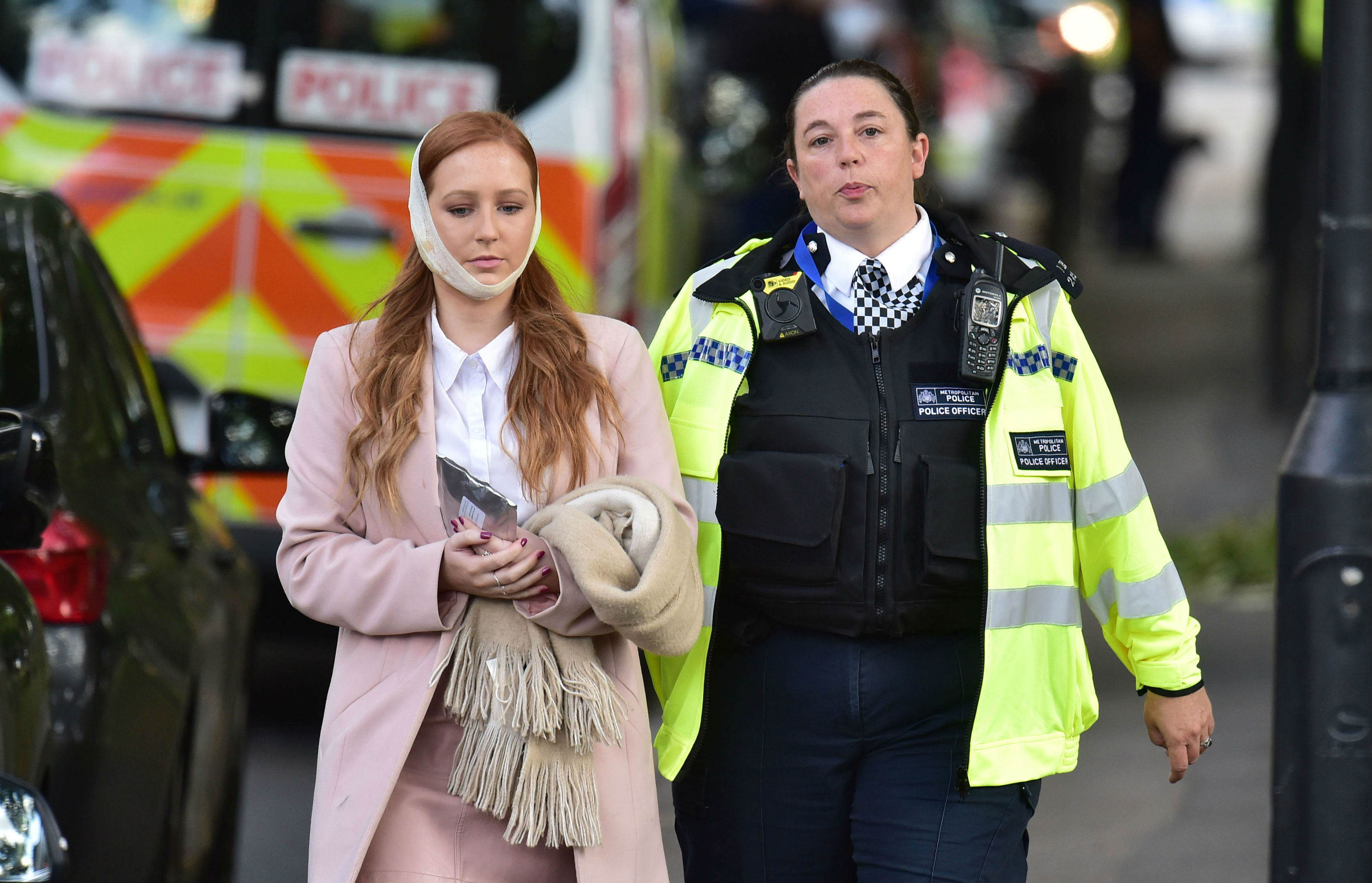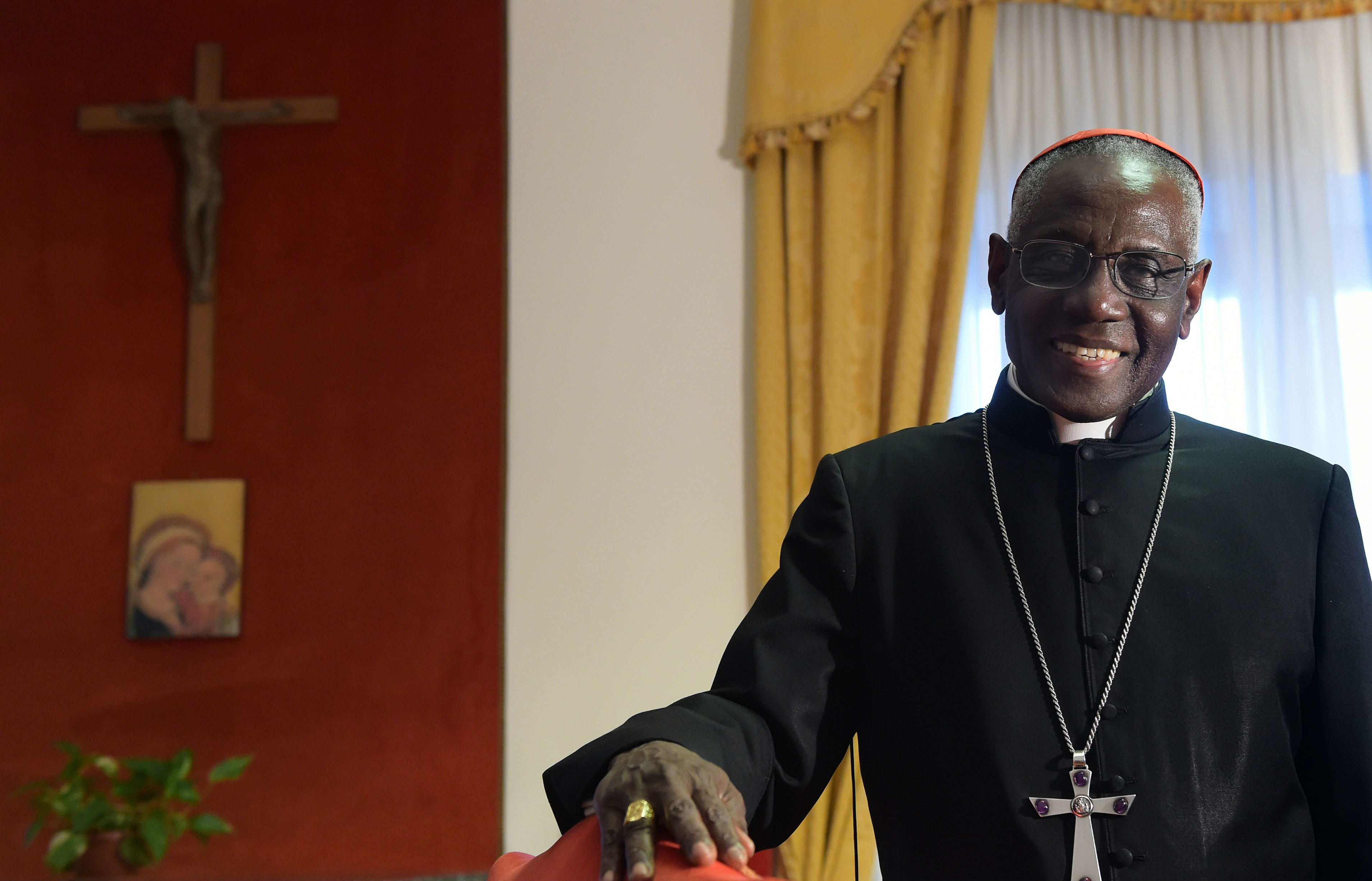The Vatican’s most senior liturgy official has outlined his vision for Catholic worship, calling for more silence, a greater focus on the sacred and for priests to stop using smart phones and tablets to say their prayers.
Cardinal Robert Sarah, the Prefect of the Congregation for Divine Worship, outlined his hopes in an hour long address at a conference in Rome, arranged to celebrate 10 years since Benedict XVI’s loosening of restrictions on celebrating Mass in the old rite.
The driving theme of the cardinal's talk was that the liturgy must have God at the centre of the worship. This means avoiding the Mass becoming “entertainment” so that it should instead transport people away from a world marked by “an increasingly aggressive secularism”, a “cacophony of consumerism”, and an “advancing culture of death.”
He argued that technology can become a distraction, so electronic devices must be turned off or left at home before going to Church. More controversially, he also said priests should not use iPhones or tablets for their daily prayers: in recent years many clergy, religious and lay people pray the liturgy of the hours using electronic devices.
“Perhaps it is very practical and convenient to pray the breviary with my own mobile phone or tablet or another electronic device, but it is not worthy: it desacralises prayer,” the cardinal explained at the Fifth Roman Colloquium on Benedict XVI’s Motu Proprio, Summorum Pontificum, held at the Angelicum university. “These apparatuses are not instruments consecrated and reserved to God, but we use them for God and also for profane things! Electronic devices must be turned off, or better still they can be left behind at home when we come to worship God.”
His speech comes shortly after two major interventions by Pope Francis on the liturgy, the first being an address where the Latin American pontiff stressed there was no going back on reforms following the 1962-65 Second Vatican Council. Then, last Saturday, Francis handed back the power to local bishops conferences to oversee translations of the Mass from Latin into vernacular language, something that Vatican II had called for.
The latter move significantly reduces the power of Cardinal Sarah’s department on translations - although it still holds the power of ratifying them - while the Pope is increasingly turning to the cardinal’s deputy, British Archbishop Arthur Roche, as his liturgical point man.
In his talk yesterday, the 71-year-old Guinean prelate did not overtly challenge Francis, stressing that the Pope had “continued” Benedict XVI’s opening to traditionalists of celebrating the old rite. He also referred to a speech from Francis saying that “a liturgy detached from spiritual worship would risk becoming empty,” and that it is “an action of Christ.”
Yet there were also places where the Cardinal’s speech appeared at odds with the Pope.
While Francis described the reforms following the Second Vatican Council as “irreversible”, Sarah aligns himself with those who would like some of these changes revised.
He argued that priests should consider facing “ad orientem” - with their backs to congregations - when saying Mass and calls for a “positive enrichment” of the current liturgy with elements from the pre-Vatican II Mass.
This, the cardinal says, would include more silent prayers allowing peoples’ spirits to “soar heavenward because there is space which allows them so to do.”
It is also silence that Cardinal Sarah believes helps ordinary Catholics actively participate in the Mass: it was Vatican II that emphasised the laity should be full and active participants in the Mass.
The role of the congregation is another area where the visions of the Pope and his top liturgy official clash. In his speech last month to Italian liturgists, Francis talked about the the Mass as an action of the people and “for the people”, and the the liturgy is by nature “popular” rather than clerical.
By contrast, Cardinal Sarah criticised “anthropocentric liturgies” saying that in “recent decades” there has been a tendency “to plan and hold liturgical celebrations where the focus is mostly on the celebrating community” and exclude God.
“Such celebrations are unacceptable because they reduce something which is of its very essence supernatural to the level of merely the natural,” he said, adding that they also go against the wishes of Vatican II.
The cardinal also issued a warning to Africa, Latin America and Asia against the incorporation of local cultural expressions into Catholic worship. He talked about the “human ambition to inculturate the liturgy” which must be done prudently “in order to avoid superficiality, folklore and the auto-celebration of their culture.”
In its document on the liturgy issued in 1963, the Council talked about respecting and fostering “the genius and talents of the various races and peoples” and that “anything in these peoples' way of life which is not indissolubly bound up with superstition and error she studies with sympathy.”
Cardinal Sarah’s speech also urged the Church to open their hearts to young traditionalists who are devoted to celebrating the sacraments in the old rite.
“They are neither nostalgic nor embittered nor encumbered by the ecclesiastical battles of recent decades,” he said adding that Catholics who attend Latin Masses should not view themselves as “any way inferior or ‘second-class’.”



 Loading ...
Loading ...